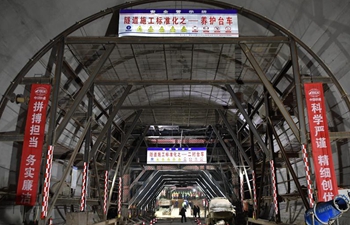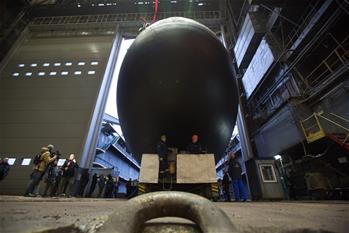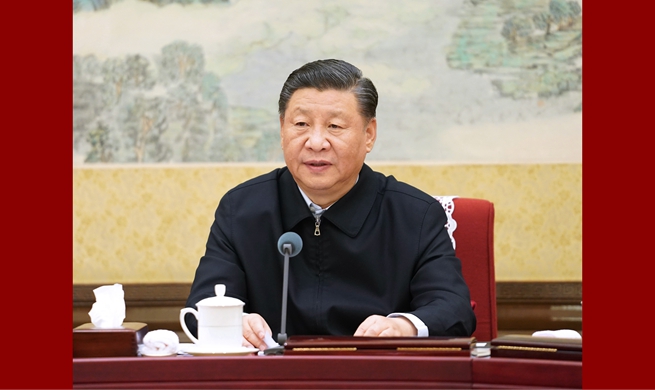WASHINGTON, Dec. 28 (Xinhua) -- The unprecedented increase in tariffs imposed by the United States against its major trading partners since early 2018 has led to job losses and higher prices for the American manufacturing sector, according to a Federal Reserve study released earlier this week.
"Since the beginning of 2018, the United States has undertaken unprecedented tariff increases, with one goal of these actions being to boost the manufacturing sector," Fed economists Aaron Flaaen and Justin Pierce wrote in a study to disentangle the effects of tariffs on U.S. manufacturing sector.
However, the traditional use of trade policy as a tool for the protection and promotion of domestic manufacturing is complicated by the presence of globally interconnected supply chains, the economists noted.
"We find that tariff increases enacted in 2018 are associated with relative reductions in manufacturing employment and relative increases in producer prices," they concluded.
For manufacturing employment, a small boost from the import protection effect of tariffs is more than offset by larger drags from the effects of rising input costs and retaliatory tariffs, the study showed.
The top ten manufacturing industries hit by foreign retaliatory tariffs were producers of magnetic and optical media, leather and allied products, aluminum sheet, iron and steel, motor vehicles, household appliances, sawmills, audio and video equipment, pesticide, and computer equipment, according to the study.
For producer prices, the relative increases associated with tariffs are due solely to the rising input cost channel, the study showed.
But the study did not explicitly consider the effects of increased uncertainty about future trade policy. Many economists see the trade uncertainty as a primary driver in the decline in business investment this year.
Despite resilient consumer spending and a strong labor market, U.S. business investment has declined for two straight quarters -- dropping by 1 percent in the second quarter and 2.3 percent in the third quarter.
Meanwhile, U.S. manufacturing sector contracted for a fourth consecutive month in November partly due to tariffs and trade policy uncertainty, according to the Institute for Supply Management.













